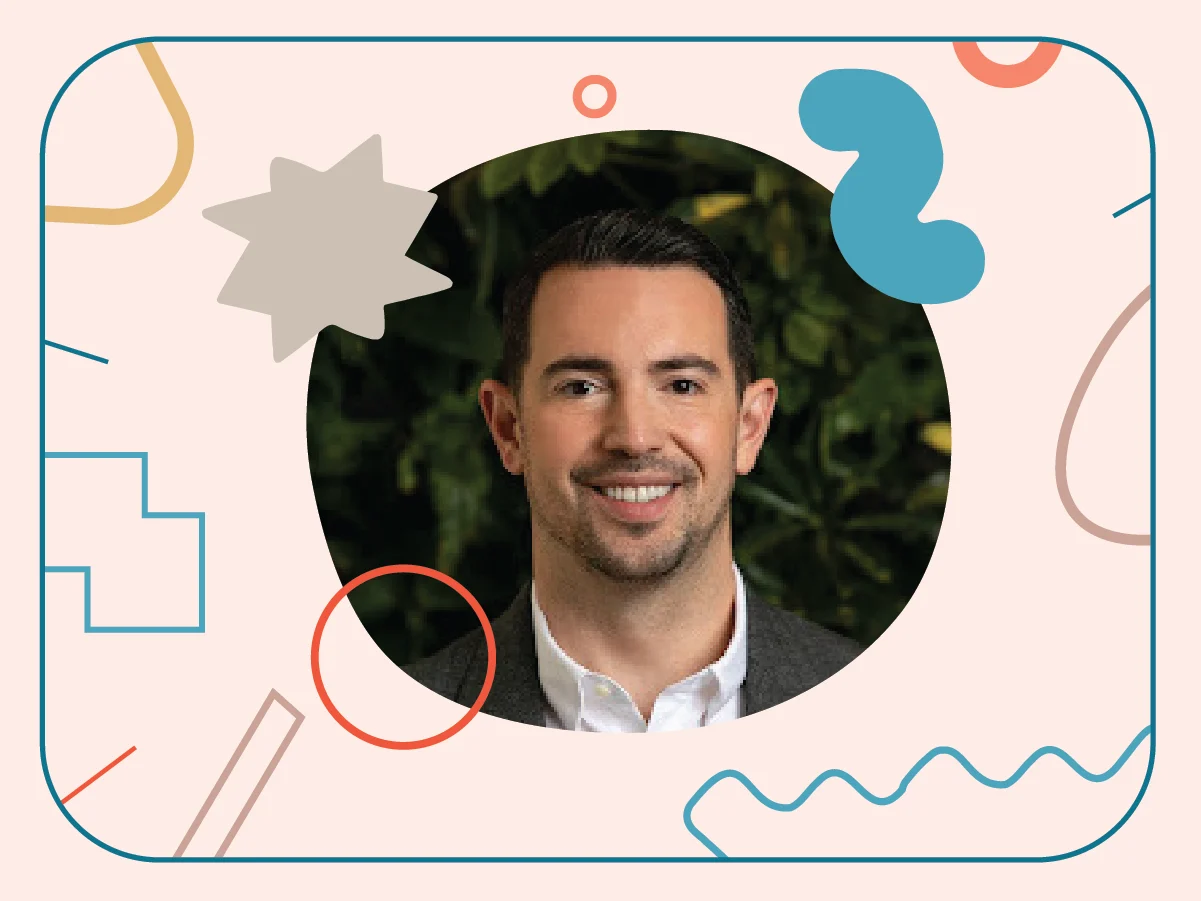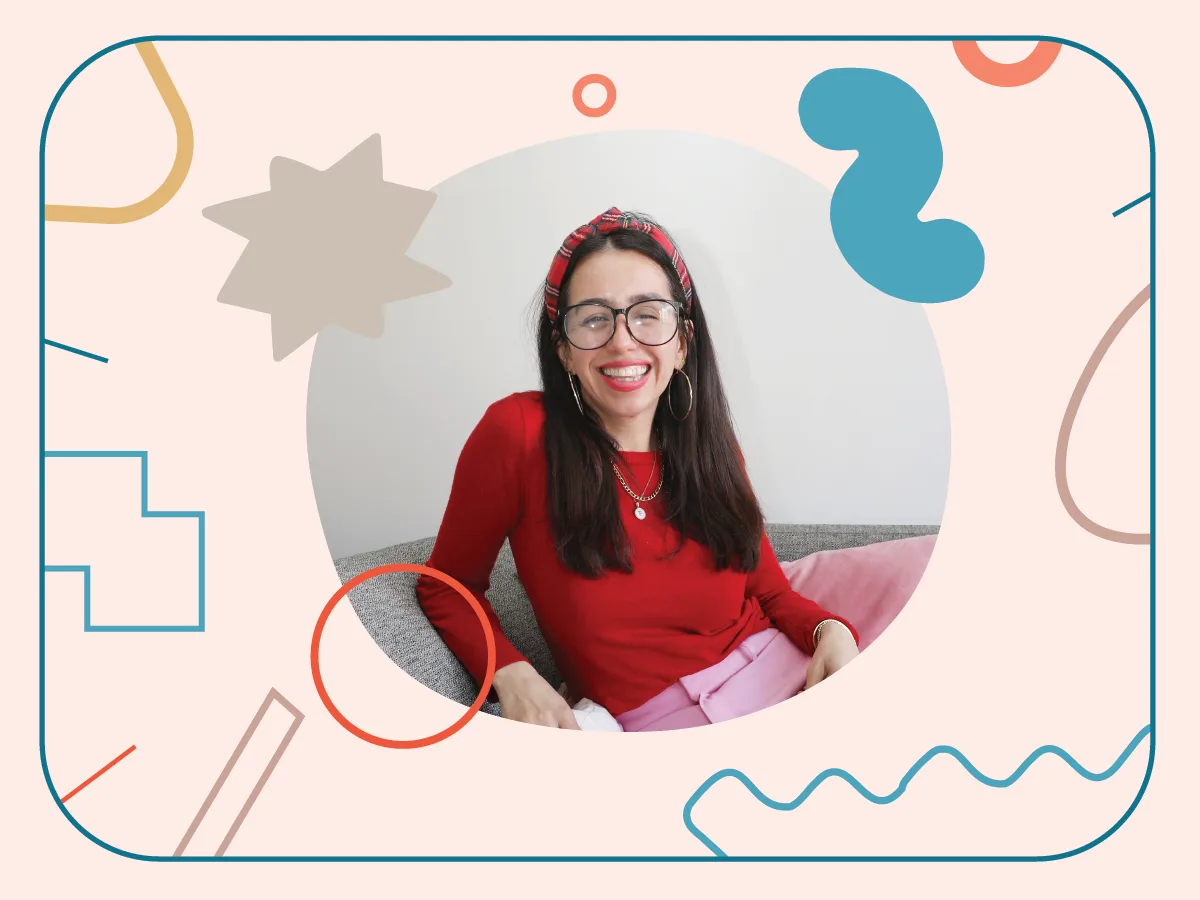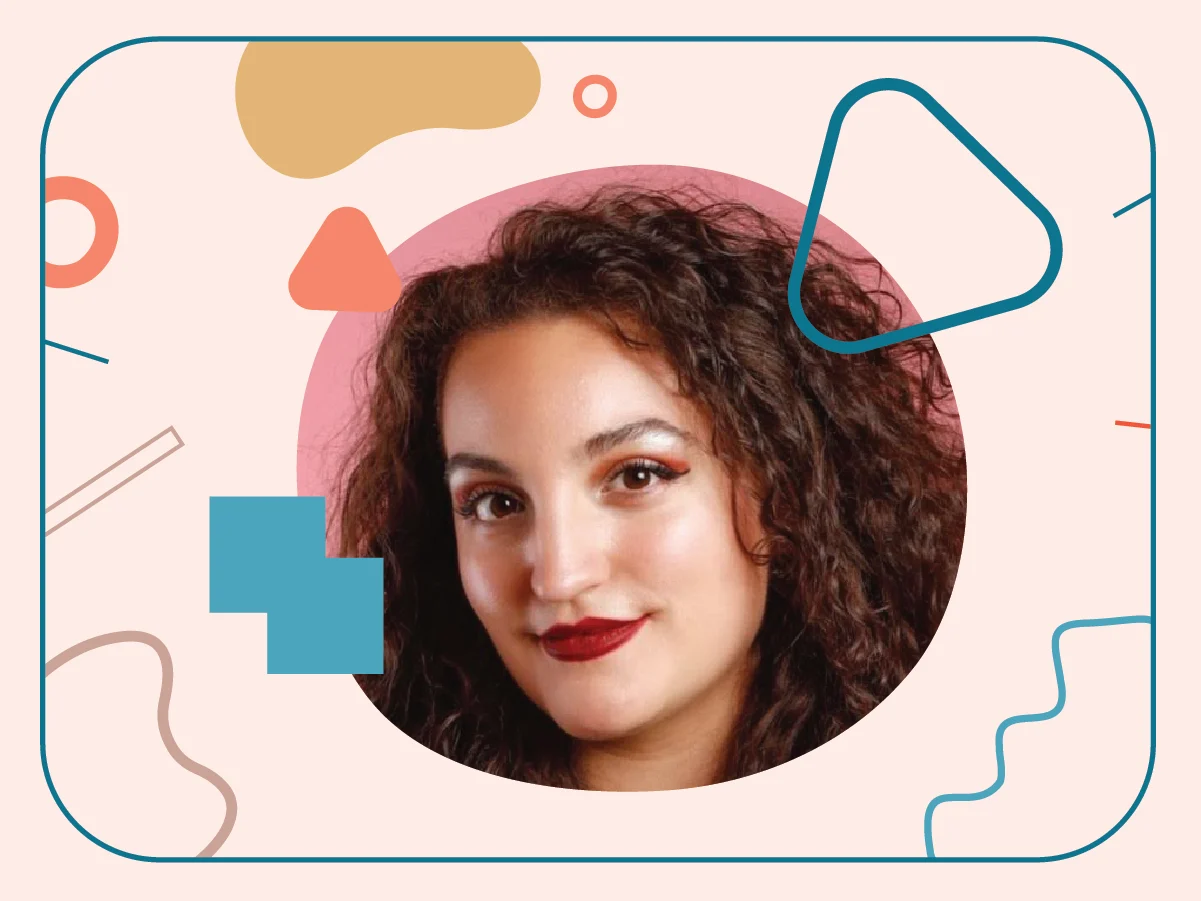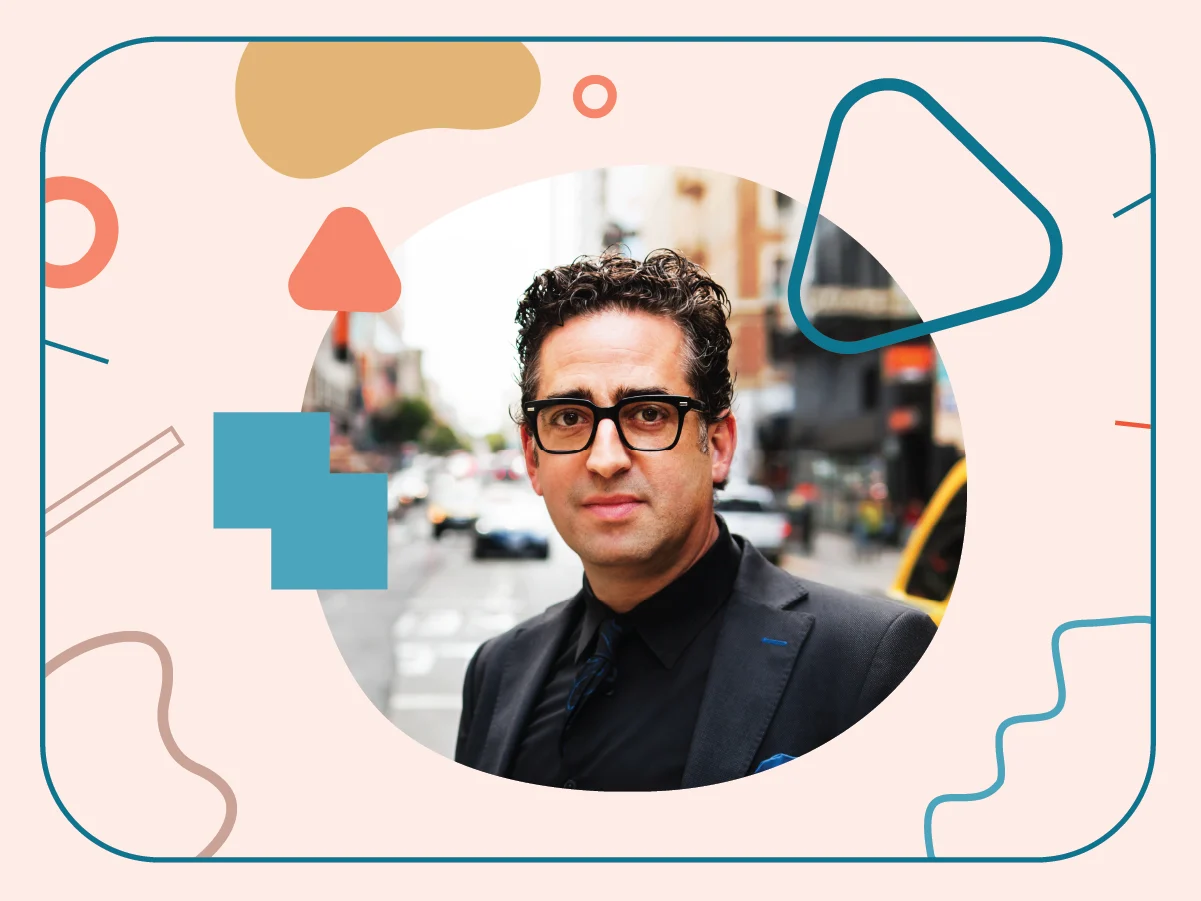When carpentry skills and ADHD run in the family

Stay in the know
All our latest podcasts delivered right to your inbox.
Michael Upshall Senior and Junior both have ADHD. This father-and-son duo doubles as boss and employee in their carpentry business, Probuilt Design + Build. In both work and life, they understand how the other thinks.
For Michael Sr., school never matched how his brain worked, and he left high school in the 10th grade. That’s when he took up an apprenticeship, eventually starting his own business. He’s now a master carpenter. And he was diagnosed with ADHD in 2012.
Michael Jr. was diagnosed when he entered high school, so he got the support to help him finish school. He’s been working at his father’s business since he was 12. Now, as an adult, he’s learning the ropes of running a business — while picking up ADHD strategies from his father along the way.
Listen to this week’s episode of How’d You Get THAT Job?! for our first interview with two guests. Get tips for keeping track of your thoughts, and learn why contracting could be the right fit for you.
Related resources
Episode transcript
Michael Jr.: I came to my dad’s and said "I can't keep my head on straight with this job. Like, there's just so many moving components, so many different things that just come at you all the time." And that's when he came to me with the idea of the notebook. And I have to say that absolutely saved my life in so many different aspects.
Eleni: From the Understood Podcast Network, this is "How'd You Get THAT Job?!," a podcast that explores the unique and often unexpected career paths of people with learning and thinking differences. My name is Eleni Matheou, and I'm a user researcher here at Understood. That means I spend a lot of time thinking about how we find jobs we love that reflect how we learn and who we are. I'll be your host.
Today, we're trying something new. We're talking to a boss and an employee who also happen to be father and son. Michael Upshall Sr. started Probuilt Design + Build in Toronto area more than 30 years ago. He didn't start out expecting to run a business of dozens of employees. In fact, he struggled in school and left before getting his high school degree.
But he always loved carpentry and he was able to turn that passion into a business. Today, he oversees everything from designing homes to actually building them. Michael Jr. started working with his parents at Probuilt when he was still a kid. Now he's in his 20s, he studied architecture, and he's now following in his father's footsteps at Probuilt. Both Michaels have ADHD. The way they work together shows how helpful can be to have a mentor with learning and thinking differences in the workplace and someone that understands.
Eleni: I'm pretty excited for this interview because today it's a little bit of a first for us talking to a father-son duo who also work together. So, we are hopefully going to get a little bit of a glimpse of, you know, the boss-employee dynamic as well. So, I'm really looking forward to hearing what you both have to say. It would be great if you could just tell us about the family business. Like. Michael Sr., do you want to tell us, you know, when did you get started and Michael Jr., like when did you join?
Michael Sr.: Well, we could go way back if you want. I've been in the industry 40 years, so, you know, I've got a wee bit of sawdust in my blood, so to speak. We started the company, I guess, in, what is it, 1989? And then over the years, the business started growing a bit more. And then I ended up hyperfocusing on it and took it to the next level. And over the years, my wife and I had grown it to a point where we'd start thinking about, you know, bringing the kids into the business if they were interested. That was one of the things. I didn't want to shove it down their throat either. I wanted to make sure that they were OK with it, and it was open to all of them, too.
Michael Jr.: I started working with Probuilt probably when I was about 12 years old, so that would be 12 years ago from now, yeah. Just little stuff here and there on the job sites and kind of just following dad around, tagging along, you know. It took a little while for me to be able to actually be on the job sites with the guys without parents, I guess. But eventually when I was 14 years old was when I started on the actual job sites with the other employees and basically just started as a carpenter’s hand, more or less just sweeping brooms and moving material around, but basically just gaining experience in the beginning for me.
Eleni: And Michael Sr., you also started off as a carpenter, as a teenager. Is that right?
Michael Sr.: Yeah, I'm a master carpenter. I started my apprenticeship when I was young. I've got a grade 10 education. You know it turned out that school wasn't the do all the be all for someone like myself because it's not set up for ADHD people.
Eleni: Definitely.
Michael Sr.: I didn't know that at the time, I just felt, knew I was different and felt different and had to do something, you know, different than everybody else.
Michael Jr.: And it's crazy thinking about like that time, especially considering that you dropped out in the 10th grade. Like looking at my age now and the different things that they have in place, especially within the education system, that can help a lot with education because I started struggling big time as well, too, while I was in high school as well, coming into grade nine.
And pretty much all my teachers said the exact same thing, that I'm pretty much off the walls, ADHD, ADD, whatever you want to call it, and basically just recommended that I got tested as well too. And by doing that, a lot of the procedures that they were able to put in place after I got all the testing done was able to help so much more throughout my schooling.
Eleni: Yeah.
Michael Jr.: And like I always think about my dad in that way too, like if he had the same opportunities that I have now, like what he would have been able to do or where he could have gone with education that way.
Michael Sr.: I had to educate myself.
Eleni: And look where it got you. It got you two great places.
Eleni: Michael Sr., you mentioned that you felt like your son was a carbon copy of you, and I'm not sure if you really know, but there has been a lot of published research about ADHD being genetic. It's actually generally agreed upon that if an adult has ADHD, there's a 30 to 50 percent chance of the child also having ADHD, which is pretty high. So, it's not really a surprise like father, like son. Could you talk a little bit about some of the similarities that you've noticed between you and your father, particularly in the way that you think and work that might be related to ADHD?
Michael Jr.: Yeah. Well, I guess it really started with a young age especially. I mean, what kid doesn't grow up and grow up wanting to be like his dad, you know? So, it's really been with everything from the sports that he played to the work field that he's within. And it really drove me to wanting to get inside the construction workforce as well. It got me super interested into architectural design and art and guitar, but as far as tendencies go and personality-wise, I feel like we're both very I don't know, we're just kind of out there kind of guys.
Eleni: But what do you mean by out there?
Michael Jr.: We're both very energetic, I guess you could say, and more upbeat type deal. And I think that also comes along with the ADD as well too. We're both very, very forgetful. So, we have to put things within our day-to-day lives to be able to operate properly at least. Yeah.
Eleni: I saw that article, the interview that you had in the Canadian Contractor. I think one of you mentioned this idea of like high risk, high reward. Have you considered how that might relate to your ADHD or how your ADHD might play a role in that kind of drive?
Michael Jr.: Oh, totally. Pretty much my whole life has been high risk, high reward. Everything that I've done is pretty much just all in. I've never really been much of a dip-your-toes-in-the-water kind of guy. If something really gets me going and it's something that juices me, I just dive right in and everything and I just want to know everything about it and I want to do it all the time. And I think about it all the time. And I mean, it's not always a good thing either, which like, which a lot of people think, "Oh, why..." it takes away so much from other responsibilities and other productive things? But...
Eleni: Yeah.
Michael Jr.: ...I guess it's a matter of being able to try and find a balance. And that's definitely something that I'm still struggling to find and do still today. But we're working on it, that's for sure.
Eleni: Yeah. Well, it's funny because you both use the term something that makes you feel juicy, like to like hyperfocus.
Michael Jr.: It's such a weird feeling and it's something that and you know, when it's happening too, and that's when it's just like, "Oh, here we go again." And what's funny is because about that as well too, is like the saying like jack of all trades, I'm a jack of all everything, to be honest with you. So many different things excite me and leads me to just jump from one hobby to the next and one project to the next. And just being able to stay on one thing constantly and being able to finish something is certainly a big struggle.
But being able to learn so many different things and talk to so many different people through so many different hobbies has been something that's been awesome throughout my life.
Eleni: Yeah. And I know that you mentioned that you can both be forgetful. What strategies have you put in place to, like, help you perhaps not be so forgetful, like at work?
Michael Jr.: Well, actually, my dad actually gave me the idea. Both of us carry around this little notebook. It's just a normal size notebook and pretty much goes with me everywhere I go. It doesn't leave my truck. And one when I get to the truck, it comes with me and into the house, onto the job site. And it's basically just a tool that I use with me every single day just to jot down thoughts and job site ideas and design ideas. Pretty much everything, even just a matter of don't forget to eat. But that's one of the things that has absolutely just saved my life.
And a big part of it, where that came from was, I came to my dad's and I, I can't keep my head on straight with this job. Like, there's just so many moving components, so many different things that just come at you all the time. And that's when he came to me with the idea of the notebook. And I have to say that absolutely saved my life in so many different aspects, especially when it comes to work.
Eleni: And it takes a lot of self-awareness to know what you need. Michael Sr. for you, like, how did you figure out that that was something that help you, and like, do you have any other strategies or tools that you use day to day at work?
Michael Sr.: Oh, yes, I do. I've got lots of them, actually. One of the main things that really helped me was. In my office, day-to-day work was being able to have a personal assistant that saved my life and allowed me to excel because now I didn't have to worry about missing my meetings because my personal assistant would call me an hour or two before and say, "Whatever you're doing right now, close it up because you got another meeting you got to be at." And she always knew where I was and how far I had to travel and these types of things, and it was just invaluable. But that was one of the main things I would say.
Then the other is actually writing things down in a book, because I've also learned like not only from ADHD, I think it just in general, I think anybody would benefit from that because a lot of times we end up in our own heads and we get stuck there. And when we think of things that we need to do or whatever, you know, swirls around in our brains and we really need to get it out of our brains and out there. And there's two ways to really do that. And that's to either speak it and say it to someone or to whatever, and the other is to write it down. And if you do both, then you're way ahead of the game because then it becomes real.
Michael Jr.: I totally agree.
Eleni: Mm hmm.
Michael Sr.: That's what I found, that these things, they jump out of your brain and become a little bit more real because now somebody else might say something about it. And then when you're doing that, especially if you're hyperfocusing and stuff like that, you're always being drawn towards whatever it is that you're thinking about or hyperfocusing on. So, writing things down and speaking them and getting them out of your brain has been a very valuable thing for me.
Michael Jr.: To tag along with that as well, to scheduling and basically just having an order or a routine.
Eleni: Oh we need routine. We need routine bad.
Eleni: Are there any tools you use to create and keep on track of your routine?
Michael Jr.: It's mainly just a matter of scheduling. We have an app called Code Construct that we use for our construction business. It has everything from scheduling to the plans to where I'm supposed to be that day, what I'm doing that day. And it's basically just a checklist for what I'm doing that day. So, that helps a lot as well too.
Eleni: You know, obviously there's a lot of benefits of working with family members who know you and know how you think and work. And, you know, we often talk about disclosure at work. But for you, Michael Jr., that was something that you didn't need to do because obviously your boss already knows you have ADHD.
Michael Jr.: Right. My boss is 10 times worse than I am and I'm terrible for it.
Eleni: See? He's 10 times worse. I heard him say that you're a carbon copy. I disagree, but here.
Michael Jr.: I guess that makes me 10 times worse too.
Eleni: Are there any other benefits that you see of, you know, working with someone that knows you so well and like knows your tendencies so well?
Michael Jr.: I think a big part with my dad especially is just being able to have the guidance in a way and somebody that's kind of already been there done that. It makes a lot of my day-to-day problems seem a little bit smaller because a lot of the time, especially in the construction industry, he's been through that exact problem five or six times before. Yeah. Being able to have a mentor, just somebody that's similar to you and in a way that's kind of experienced a lot of the things that are very new to you. It can help so much.
And even just being able to just bounce things back and forth and get advice here and there. Like even just today, him and I had a 20-minute conversation just about building stairs and it's just really nice to be able to just bounce something off of somebody. And it really helps to clear my head as well, too. And I'm really happy that it's my dad that is the person that's that for me.
Eleni: Oh, that's really sweet.
Michael Jr.: I love working with my parents because I look at it in a way where it's like I look at some people my age and like some of them only talk to their parents like two or three times a month, like a year sometimes, some people don't even talk to... I get to talk to my parents every day and they're very helpful and they're helping me build my career pretty well as well, too. So, it's awesome.
Michael Sr.: The way I look at it, Michael, is I look at your age and I think about where I was, man oh man kid, you're way, way, way ahead of things. You're like... and the stuff, you know, it's awesome.
Michael Jr.: Thank you.
Michael Sr.: I think your career is going to really, really, really take off big time in the next, you know, within the next five to 10 years. Just from the business knowledge that you've learned, I think that's been a real benefit.
Eleni: So, I wanted to go back to the beginning of the conversation. I know Michael Sr., you talked about originally your I guess you're trained as a carpenter, in Australia we say a chippy, you're a chippy. Michael Jr. we actually didn't really talk about what your background is, what you studied, but I know that you've been working with your dad since you were 12 and obviously you had a keen interest for, you know, being part of the family business. But I would love to hear, like why you think that you're really suited to like the building and construction industry and design and just talk a little bit about that.
Michael Jr.: Yeah, sure thing. Well, ever since I was young, I've always been very, very hands-on. The way that I first started working was I was used to just go through the neighborhood and my own neighbor's lawns here and there, and I used to love that kind of stuff. We had our own lawnmower and I'd buy my own gas and that was my first means income. And then I ended up working at one of our local auto shops, which was basically just working on cars for 10 hours a day in the summer and three hours after school. And I loved that as well. So, I've always just been very, very interested by working with my hands, working with different types of, different types of systems, different types of machinery, whether it's wood, metal, whatever it is. But what made me really, really realize that I enjoyed working with my hands was from actually working in an architectural office.
So, I went to school for architectural technology at Fanshawe College. I actually do still have a semester left that I am dying to go back and finish, but when we find the time. But I worked in an architectural office for a summer, and it was just the matter of having to sit at a desk for me for eight, 10 hours a day would just send my brain absolutely wacky. And I just found myself staring at the clock all day, and I couldn't believe how exhausted I was getting throughout the day by essentially like typing and looking at a screen.
So, like, by doing that, I kind of just instantly knew, like, I don't think this is meant for me. So, I sat down with my parents, and we had a conversation and I pretty much just determined from there that I'd prefer to be working more within the family business. And so, I went back to school and then ended up coming home. And for the past three years now, I've been working with the family business from there with the architectural background as well, too.
Michael Sr.: And how do you apply the architectural background to the day-to-day?
Michael Jr.: I still use it all the time. What's really nice about that is the design aspect. I can more so do it at my own leisure, rather than being sat at a desk and having to do it five days a week, 10 hours a day, eight hours a day, whatever it is, and being able to do it when I want to do it because I honestly do enjoy it and I love it. But I guess I just don't love to do it all the time.
Eleni: Of course.
Michael Jr.: Whereas being on site and having all of the noises and the banging and the like, just everything. So many different moving components going on pretty much throughout the entire day. And there's so much happening. It's crazy how much more energetic and how alive I feel at work rather than almost kind of just feeling like a carcass sitting at a desk all day. And that doesn't mean anything bad towards anybody that does work a desk job. It's certainly not that at all. It's just it's really not meant for me.
Eleni: Totally.
Michael Jr.: And I don't think it ever will be.
Eleni: Yeah, exactly. No shade to anyone, of course. It's always just about figuring out what suits you and how your brain works. Well, I have one more question for both of you. So, I know that there is a shortage of skilled labor at the moment, so I would be interested to hear what your pitch would be for young people considering going in the direction of construction or contracting, or carpentry. What would you say?
Michael Sr.: I'm a firm believer that I think people get pushed in certain directions because other people think that that's what's best for them, when I think they should figure out what's best for themselves, for themselves. And a classic example of that is the reason why we're in a shortage right now, especially in Canada. I don't know about other parts of the world, but in Canada they closed the shop classes for a good solid ten, 15, 20 years or whatever the heck it was.
And at the time I remember I was saying this, I'd say "This is a huge mistake." This was like back in the dotcom era, I think, when everybody, all the parents and families and everybody was pushing all the kids towards computers and computer programing and all that, and they were closing down these vocational schools and that, and I'm like "What the heck is going on here?" I said, "We're still going to have to build things."
Eleni: Yeah. Definitely.
Michael Sr.: "You know, people we're gonna have to do all kinds of things." Anyways, that's actually led us to this huge problem right now where we've got a big shortage in skilled labor. Man oh man, I tell you, there's huge careers to be made there and all kinds of businesses. Like even the sub-trades, like plumbing, heating, electrical. Man, if you could get yourself a truck and hire yourself one guy, you could easily make six figures and I mean easily, and that could be for, and it could be a very rewarding career also. Because I'll tell you, we need, we need good ones. We need people that are out there running their businesses properly. And there's not enough right now at all. It's a problem. So, I would recommend "Get in if you can."
Eleni: Oh, thank you both. It was really great to hear from both of you.
Michael Sr.: Thank you very much.
Michael Jr.: And thanks for being so pleasant. That was great.
Eleni: You've been listening to "How'd You Get THAT Job?!"from the Understood Podcast Network. This show is for you. So, we want to make sure you're getting what you need. Email us at thatjob@understood.org with your thoughts about the show. Or maybe you'd like to tell us how you got that job. I'd love to hear from you.
If you want to learn more about the topics we covered today, check out our show notes for this episode. We include more resources as well as links to anything we mentioned in the episode.
Also, one of our goals at Understood is to help change the workplace so everyone can thrive. Check out what we're up to at U.org/workplace. That's the letter U dot O-R-G slash workplace.
Understood.org is a resource dedicated to helping people who learn and think differently discover their potential and thrive. Learn more at understood.org/mission.
"How'd You Get THAT Job?!" is produced by Grace Tatter. Briana Berry is our production director. Our theme music was written by Justin D. Wright, who also mixes the show. Margie DeSantis provides editorial support. For the Understood Podcast Network, Laura Key is our editorial director. Scott Cocchiere is our creative director and Seth Melnick is our executive producer. And I'm your host, Eleni Matheou. Thanks again for listening.
Host
Eleni Matheou
leads user research for Understood. She helps Understood to center its work on the lived experiences and voices of people who learn and think differently.
Latest episodes
Tell us what interests you
Stay in the know
All our latest podcasts delivered right to your inbox.










